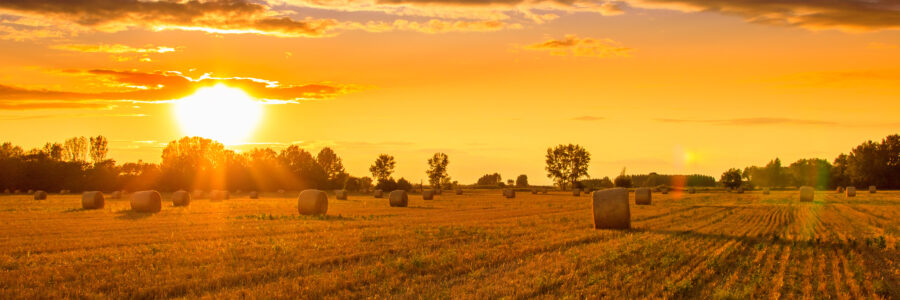Processed foods are a new addition to the human diet. The way we eat changed so much over the last century. And not always in a good way!
Our biology doesn’t evolve anywhere near as fast as our technology. There is a great mismatch between food that’s optimal for us as a species and our present dietary habits.
The Definition of Food
We all know what food is supposed to be.
It should nourish us, providing fuel for growth, vital processes and everyday activities.
In the beginning of our species history, many thousands of years ago, this is how it worked.
Our Ancestors’ Diets
Our hunter-gatherer ancestors had to spend lots of energy to get food. Food was natural, unprocessed – and not that easy to get!
Their diet was simple. Fish from the water, birds from the sky, animals from the land, and the goods they produce.
They also consumed natural plant-based foods such as fruits, grains, nuts, and seeds.
But it’s worth noting that these plants were very different pre-agriculture. Modern-day GMO variants are even further removed from their initial form.
Our Food Evolved – But Our Biology Didn’t
Fast forward to the present day. The whole concept of food evolved (or perhaps degenerated would be a better word) into almost the opposite of what it was meant to be!
In Western world, there is an over-abundance of cheap highly-processed foods that are addictive and not properly nourishing. They are available all year round, any time of the day. And you don’t have to expend any effort or energy to get them.
The result is a catastrophic epidemic of obesity and a whole spectrum of related metabolic disorders.
How Did Our Food Get So Bad?
There are many reasons and the process was gradual. There isn’t one single factor to blame.
It started with a genuine need for food preservation and storage to prevent scarcity.
There is a degree of processing and preservation that’s still fairly natural, for example, drying meat or fish or making cheese out of milk.
But as our technologies developed, so did the methods of food processing. At some point, they crossed the line from sensible and useful into detrimental.
So we went from simple methods like fermentation to using artificial ingredients, GMO technologies and intensive farming with widespread usage of chemicals and pesticides.
These methods were driven by desire to make ingredients cheaper and shelf life longer. Improving the taste and making the products more addictive is another objective. Creating more profits for the manufacturers with little regard for consumers’ health.
Refined carbs like High Fructose Corn Syrup are a prime example. Animal products also get processed beyond recognition, for example sterilized milk or deli meats bathed in nitrates.
Levels of Food Processing
There are degrees to food processing and not all of them are bad.
Minimally Processed Foods
Foods with minimal alteration, such as washed, cut, or packaged items like bagged salads and frozen vegetables. This group of foods retails most of its micronutrients and is broadly equivalent to wholefoods.
Moderately Processed Foods
Additional steps like pasteurization, fermentation, or cooking, as seen with canned beans, yogurt, and cheese. Some micronutrients may be lost or altered during processing.
Highly Processed Foods
Extensively processed foods containing additives, preservatives, and artificial flavors, such as ready-to-eat meals or anything made with sugar or processed grains. Sweeteners and low-carb Frankenstein foods also fall into this category. This group of foods is often just “empty calories” with little or no micronutrients.
Processed Foods to Avoid
In the ideal world, all of our food would be either fully natural or minimally processed as above.
Convenience and price also play a role so some of us may choose to go further and opt for moderately processed foods too.
But all experts agree that it’s definitely a good idea to avoid highly-processed foods.
The High Price To Pay
It may appear that highly processed foods are cheaper and more convenient.
But you may have to pay further down the line – with your deteriorating health and mounting medical bills.
Regular overconsumption of highly processed foods leads to multiple potential health issues:
Obesity is the most obvious consequence due to their calorie density and lack of nutrients
Digestive issues such as bloating, IBS, gastroenteritis, food sensitivities due to additives and preservatives in processed foods.
Chronic diseases like heart disease, diabetes, and certain cancers are also linked to overconsumption of highly processed foods.
What Can We Do To Fix These Problems
On the individual level, the solution is simple. Avoid highly-processed foods!
If you haven’t done so yet, find out more about proper species-appropriate human nutrition.
There is a growing movement for more natural and optimal ways of eating such as Keto, Paleo and Carnivore.
And on a society level, it’s up to all of us to challenge accepted wisdom and advocate for better ways of eating. As well as demanding accountability from institutions who are responsible for public health and well-being and failing in dier duty of care.
The tide is definitely turning! More and more people realize the current nutritional paradigm is not working!
Join the Tribe
Join our free public Facebook group and follow us on Instagram for more information on natural species-appropriate nutrition.
And if you would like some help with changing your diet, find a coach for 1:1 tailored guidance and support!
